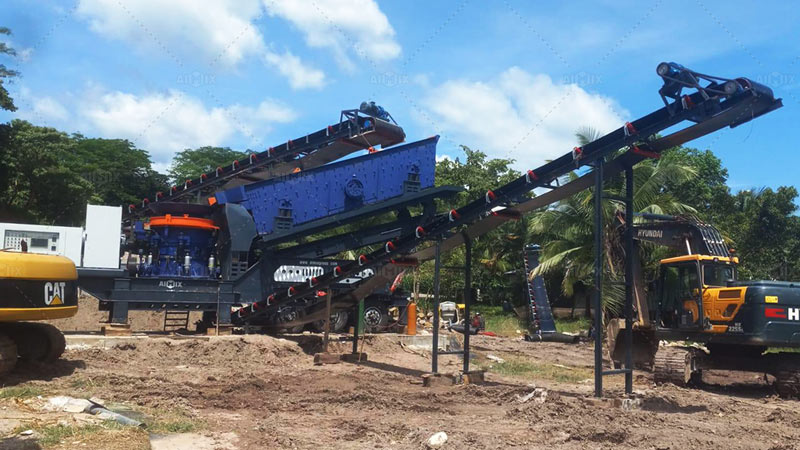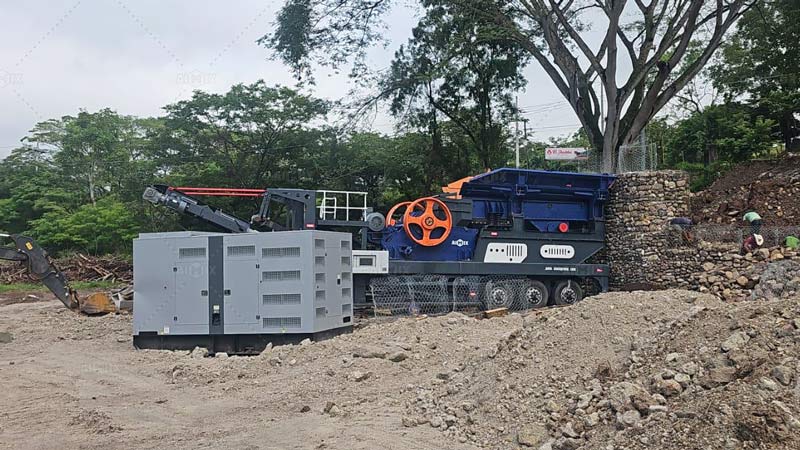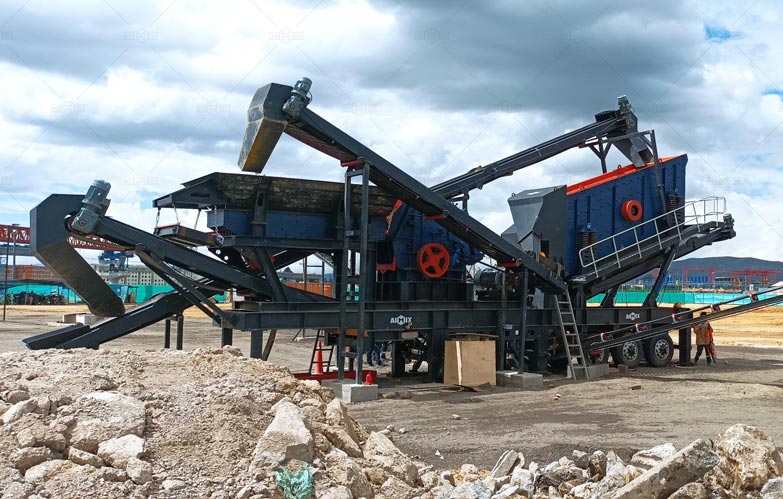
Infrastructure and construction demand in Latin America often moves faster than traditional stationary quarry setups can respond. Road repairs, new housing developments, and energy projects require aggregate close to the worksite — and delays in materials can stall entire programs. Mobile crushers change that dynamic. By combining compact logistics, fast on-site setup, and flexible process configurations, a mobile stone crusher plant can be the difference between months of waiting and weeks of production. This article explores how mobile crushing solutions(planta de trituracion movil) accelerate deployment, reduce project risk, and fit the unique operating realities across Latin America.

One of the most practical advantages of mobile units is how quickly they can be moved and commissioned. Unlike fixed plants that often require concrete foundations, heavy cranes, and extended civil works, modern mobile lines are designed for road transport, container-friendly shipping, or trailer towing. That means equipment can arrive at a new site, be positioned, and begin commissioning within days rather than weeks.
Many municipalities and permitting authorities are more receptive to temporary installations because they limit long-term environmental impact. Mobile units typically need only compacted pad areas, simple anchor points, or temporary ballast blocks. This reduces the time spent on engineering drawings and local approvals, which is especially valuable in regions where administrative lead times are unpredictable.
Containerized modules and foldable conveyors simplify ocean freight and overland moves. For multinational contractors operating across borders in Latin America, the ability to ship equipment without special oversized permits lowers cost and transit time. The result is a faster path from contract award to first ton produced.
Mobile crushers are engineered to be modular. Components such as feeders, primary crushers, secondary units, screens, and conveyors are often separate modules that can be combined or removed to match project requirements. This modularity supports rapid deployment and also enables phased investment as demand grows.
A job demanding basecourse material requires a different workflow than one needing fine sand for concrete. Mobile systems can be reconfigured quickly — swapping screen meshes, adding a secondary crusher, or adjusting closed-circuit loops — to produce the required gradation. This flexibility keeps material quality and production rates aligned with short-term contracts.
Because mobile units are designed to be temporarily sited, they become valuable mobile assets rather than single-project capital. Contractors can redeploy the same aggregate crusher plant(planta de arido) across road corridors, pipeline rights-of-way, and urban recycling yards, maximizing utilization and improving return on investment.

Latin America’s geography includes mountains, rainforests, coastal plains, and urban centers — each presenting distinct operational constraints. Mobile crushers are often better suited to these varied environments.
In mountainous or rain-prone regions where access windows are seasonal, the ability to mobilize quickly means operators can capitalize on dry-season access and then relocate before roads become impassable. This agility reduces haul distances and fuel costs while avoiding long downtime.
Mobile lines are commonly engineered with flexible power arrangements: on-board generators, hybrid battery assist, or simple plug-in options for local supply. The ability to choose a power mode that matches local infrastructure reduces startup complexity and protects sensitive electrical systems from unstable grids.
Modern mobile crushers come with centralized electric cabinets, PLC-based controls, and often remote monitoring capabilities. These features shorten commissioning because wiring and logic are standardized and factory-tested before shipment.
Factory-built, modular electrical assemblies with keyed connectors prevent wiring errors and reduce on-site troubleshooting. Operators can power up, run preconfigured test cycles, and validate settings quickly — a major time saver when the clock is tight.
Connectivity options allow remote OEM or supplier support during early commissioning stages. Technical teams can guide local crews through calibration and ramp-up, resolving issues without waiting for specialist travel across borders.
Rapid deployment translates into cash flow advantages. Producing sellable aggregate sooner shortens the time to revenue and allows contractors to meet contractual milestones — avoiding penalties and building reputation.
Because mobile plants minimize foundation work and civil scope, initial capital requirements are often lower than for stationary lines. Combined with redeployability, this results in faster payback periods and a more flexible investment profile.
Standardized, modular mobile units simplify spare parts planning. Operators can stock fewer unique parts across a fleet, and preventive maintenance can be scheduled around moves. This reduces holding costs and the risk of extended downtime due to missing spares.

Pre-Plan Site Logistics
Even with mobile equipment, pre-checks on access roads, lifting points, and local permits save days. Prepare move checklists that include sensor recalibration and safety inspections so the team can validate machine health immediately after transport.
Train Local Operators On Mobility Procedures
Ensure crews understand rigging, quick-connect hydraulics, and the electrical interface. A well-drilled local team can reduce setup time and avoid common mistakes that delay commissioning.
Choose Suppliers With Regional Support
Selecting OEMs or distributors with a local presence or regional logistics experience helps clear customs, obtain parts fast, and arrange field support — all crucial in Latin America’s complex operating environment.
Mobile crushers transform how quickly aggregate production can respond to project demand in Latin America. By minimizing civil work, enabling modular scalability, and integrating factory-tested controls, a mobile stone crusher plant gives contractors and quarry operators the agility to meet tight schedules and varied site conditions. When combined with sound logistics planning and strong supplier partnerships, mobile crushing solutions become more than a technical choice — they are a strategic capability that turns opportunities into delivered tons, quickly and reliably.